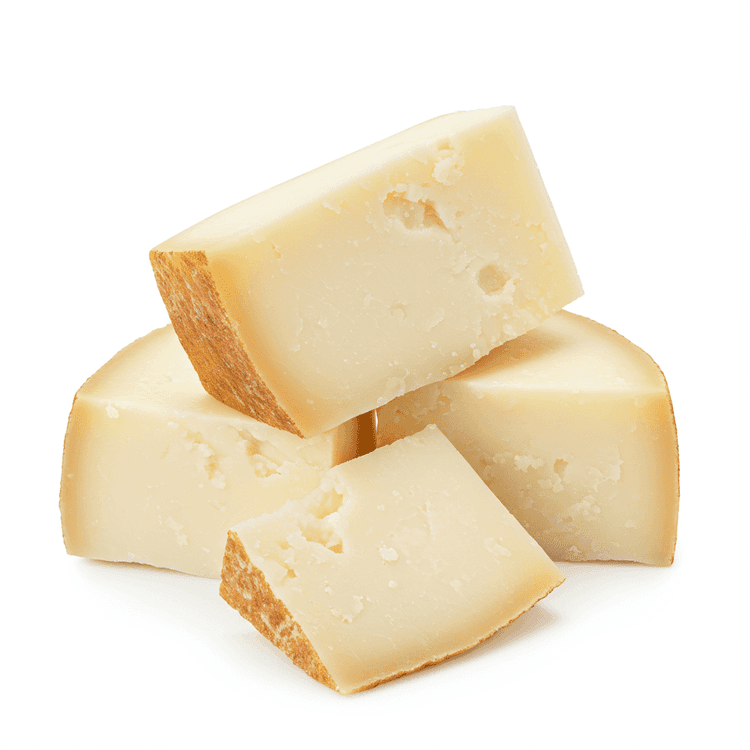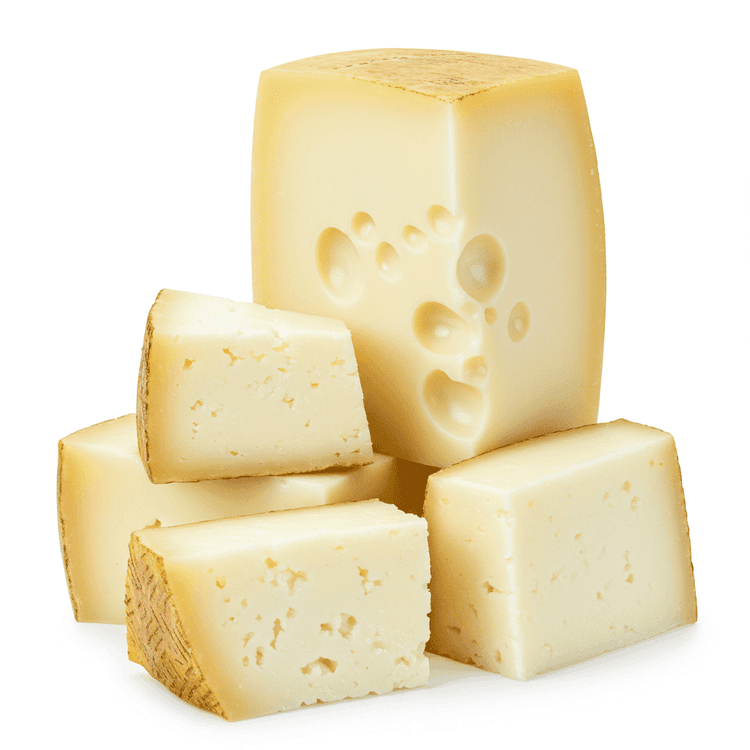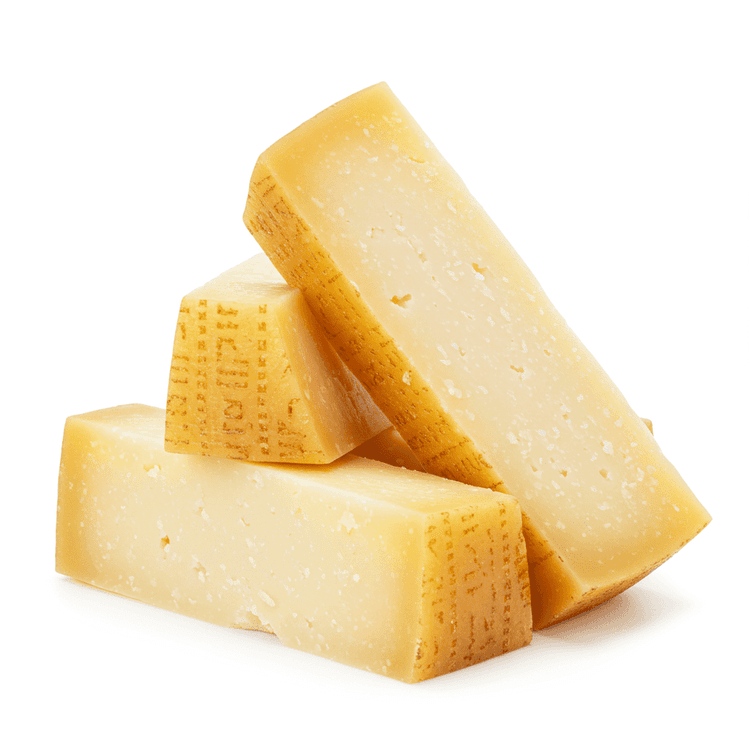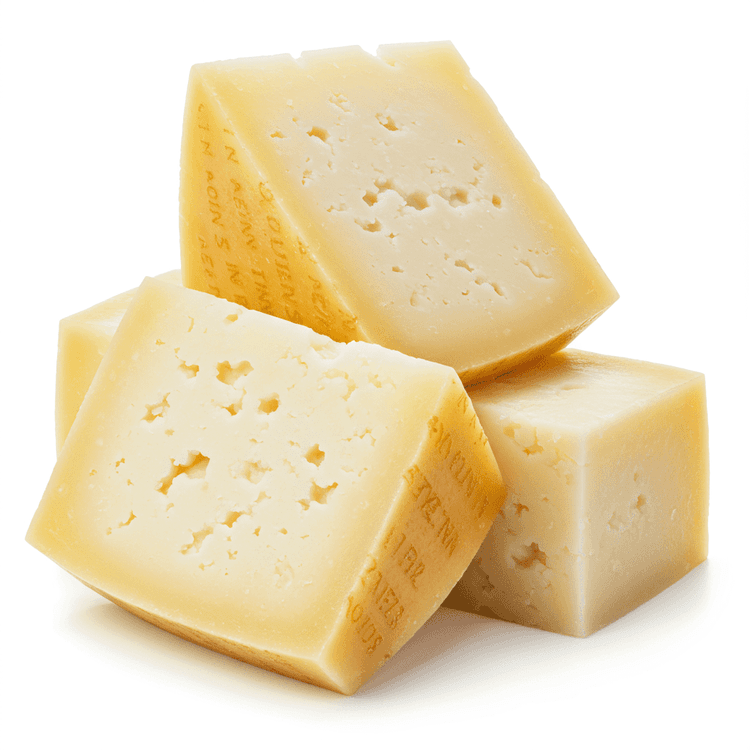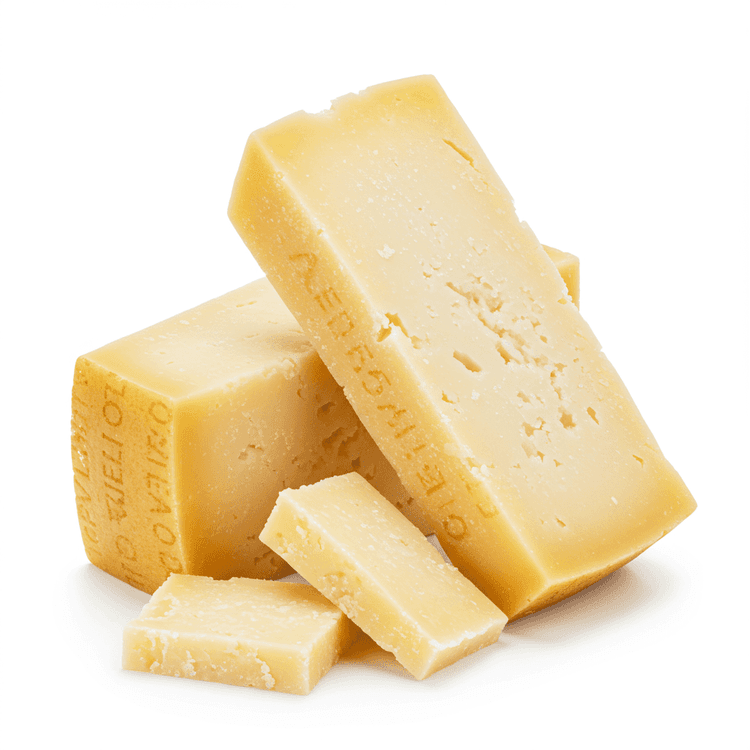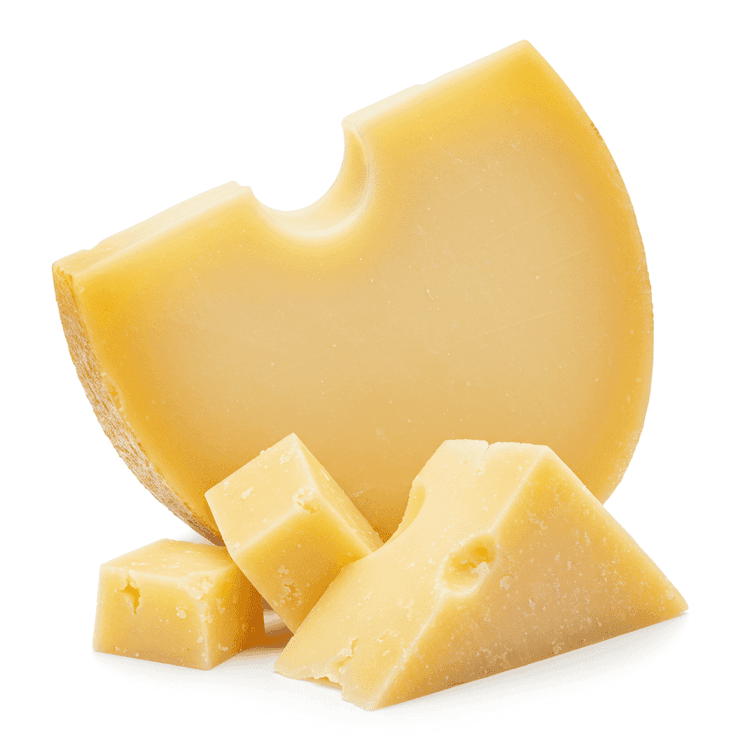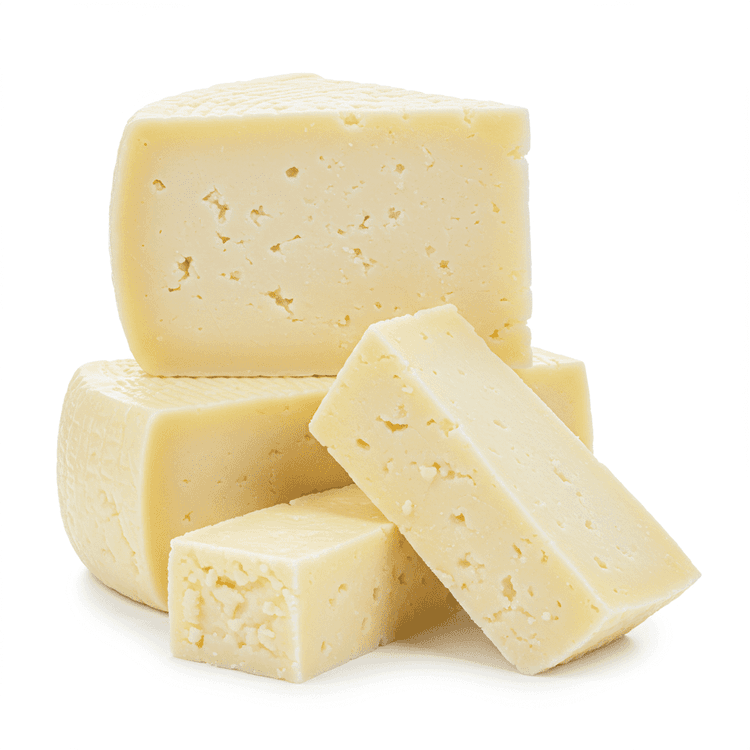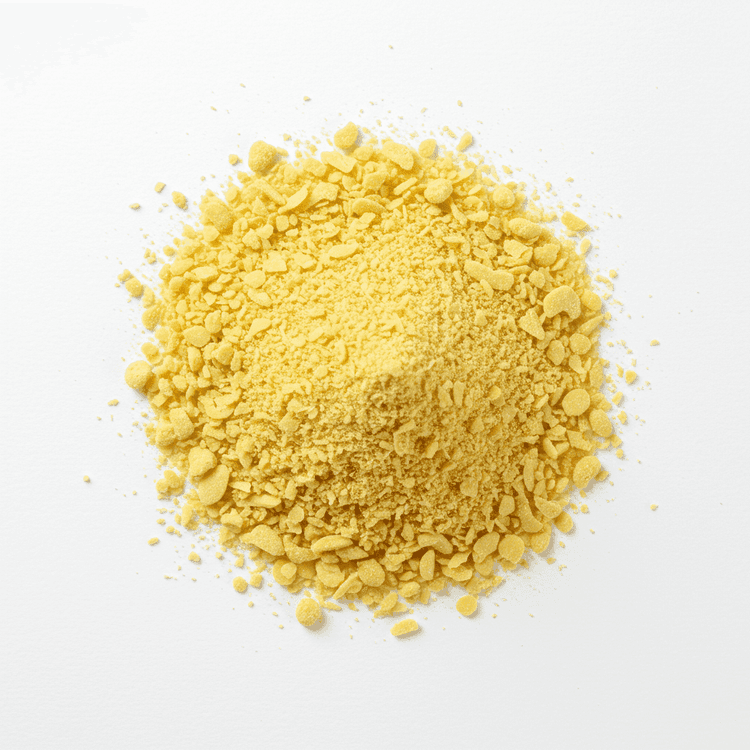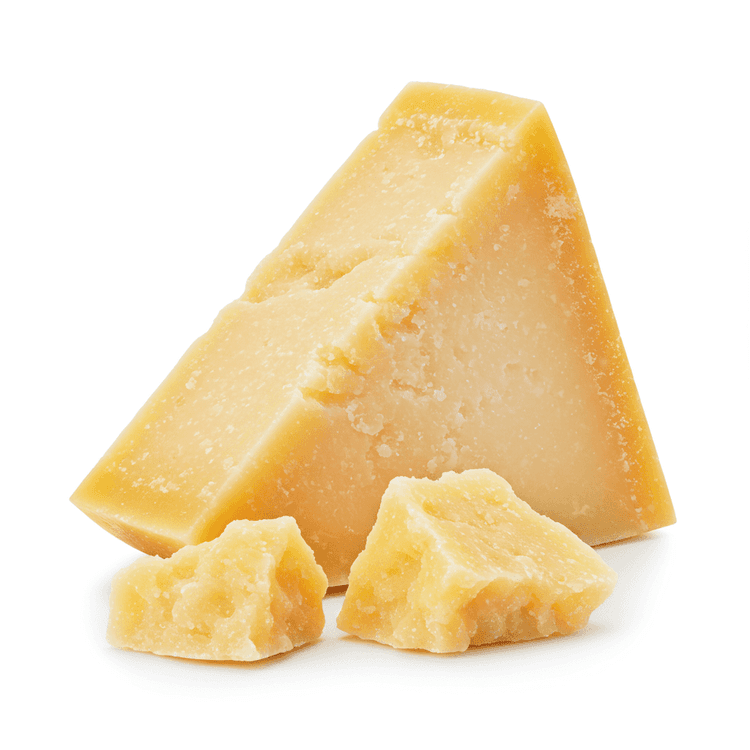
Parmesan Cheese
Parmesan cheese, also known as Parmigiano-Reggiano, is a hard, aged cheese with a rich, nutty flavor and a granular texture. Its pale golden color and crumbly consistency make it a favorite in Italian cuisine. This cheese is made from cow's milk and aged for a minimum of 12 months, resulting in a sharp, savory taste that enhances a variety of dishes. Parmesan is often grated or shaved, making it a versatile ingredient for cooking and garnishing. Its umami-packed profile makes it a go-to choice for adding depth to recipes, from pasta to soups and salads.
Common Uses
- Grate Parmesan cheese over pasta dishes like spaghetti, fettuccine Alfredo, or lasagna to add a savory, umami-rich flavor.
- Use shaved Parmesan as a topping for Caesar salads or roasted vegetables to enhance their taste and texture.
- Incorporate Parmesan into risottos or soups, such as minestrone, for a creamy, flavorful boost.
- Blend Parmesan into homemade pesto or other sauces to create a rich, cheesy base.
- Bake Parmesan crisps by melting small piles of grated cheese in the oven for a crunchy, low-carb snack or garnish.
- Sprinkle Parmesan over pizza or casseroles before baking to achieve a golden, cheesy crust.
Nutrition (per serving)
Nutrition (per serving)
Calories
431.0kcal (21.55%)
Protein
38.0g (76%)
Carbs
4.0g (1.45%)
Sugars
0.9g (1.8%)
Healthy Fat
9.0g
Unhealthy Fat
16.4g
% Daily Value based on a 2000 calorie diet
Nutrition (per serving)
Calories
431.0kcal (21.55%)
Protein
38.0g (76%)
Carbs
4.0g (1.45%)
Sugars
0.9g (1.8%)
Healthy Fat
9.0g
Unhealthy Fat
16.4g
% Daily Value based on a 2000 calorie diet
Health Benefits
- Parmesan cheese is rich in protein, making it a great addition to meals for those looking to boost their protein intake.
- It is a good source of calcium, which supports bone health and overall wellness.
- Parmesan has a bold, umami flavor that enhances dishes like pasta, soups, and salads.
- It is naturally low in lactose, making it suitable for individuals with mild lactose intolerance.
- Parmesan cheese is aged, which concentrates its nutrients and flavor, making it a versatile ingredient in cooking.
- Its crumbly texture makes it ideal for grating or shaving over dishes for added flavor and texture.
Substitutes
Chefadora AI is here.
Experience smarter, stress-free cooking.
Storage Tips
Store Parmesan cheese in the refrigerator, tightly wrapped in wax paper or plastic wrap, and then place it in an airtight container to prevent drying out. For extended storage, you can freeze grated Parmesan in a sealed freezer bag. Avoid storing it at room temperature, as this can lead to spoilage. Always check for mold and discard any affected portions.
Marnirni-apinthi Building, Lot Fourteen,
North Terrace, Adelaide, South Australia, 5000
Australia
